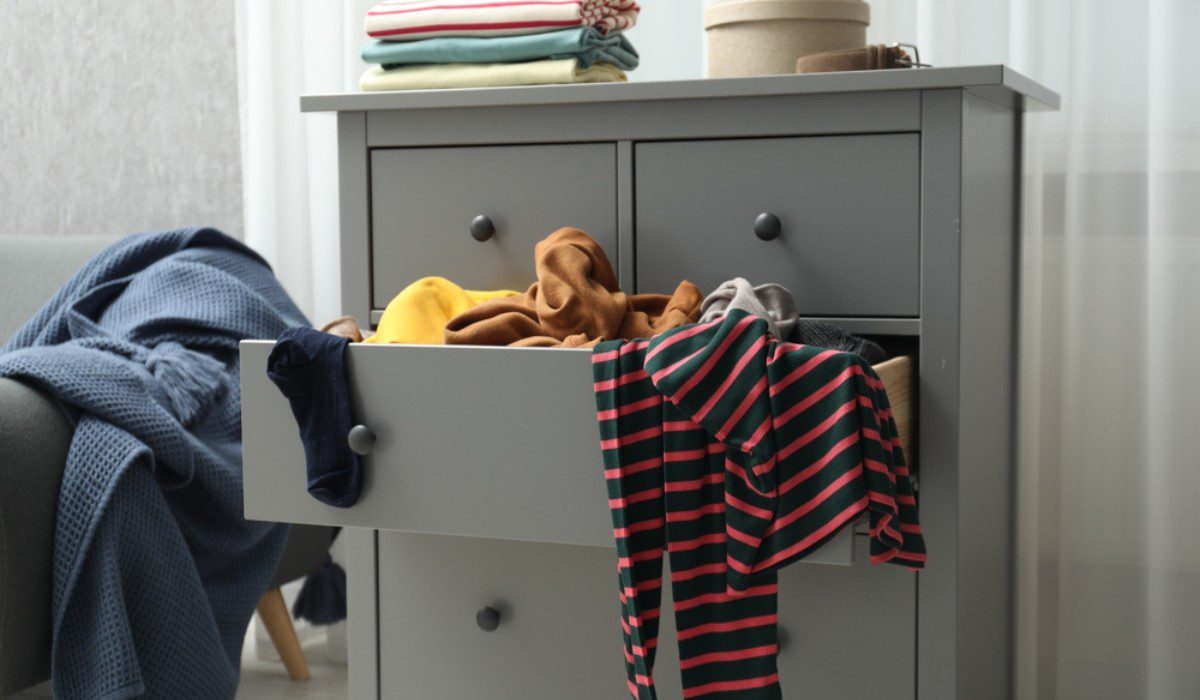When it comes to organising our space, getting rid of clutter is the primary and possibly the most important step. Your belongings might accumulate over time and take up more space than it might be possible for you to spare, especially in the case of Indian households that value maximalism. Therefore, it becomes necessary to go through your possessions from time to time and get rid of the things that you no longer need. However, this doesn’t necessarily have to be just a periodic process. You can significantly minimise clutter by adopting some habits. In this article, we will familiarise you with some habits you can follow on a regular basis to keep clutter at bay.
See also: Store room design ideas for a clutter-free house
Holding onto unnecessary items
There are various reasons as to why people might hold onto certain items. This might include sentimental value or potential future use. However, doing so can lead to the accumulation of objects that take up space without serving any practical purpose. Avoid this by regularly reviewing your possessions and evaluating each item’s utility and value. If any item has not been used in the past year and doesn’t hold any significant sentimental value, consider recycling or donating it.
Procrastinating on tidying up
If you have the tendency to put off small cleaning tasks, you might have to deal with bigger messes over time. Procrastinating cleaning tasks allows clutter to build up and become overwhelming. It is recommended to establish a routine for tidying up. Taking out 10 – 15 minutes everyday to put things away is a good habit to adopt. Try breaking major cleaning tasks down into manageable pieces and tackle them immediately rather than allowing them to accumulate.
Not having designated storage spaces
Without specific places for storage, items will possibly end up scattered around the house. This lack of organisation might make it even harder to locate items in times of need and significantly contributes to clutter. Always keep your items in their designated places. To facilitate more efficient organisation, consider using storage solutions such as bins and shelves and label the containers for easy location of items.
Ignoring the “one in, one out” rule
When you are bringing home new items, they can lead to clutter before you know it if a corresponding number of items is not removed to make space for the newer ones, thereby leading to overaccumulation of possessions. Therefore, for every new item accumulated, make sure to remove an existing item. This can help maintain balance and prevent excess clutter. Keep regular track of your belongings to avoid overcrowding.
Overloading storage spaces
Packing storage areas to the brim might seem like an effective space optimisation strategy but in reality makes it more difficult to locate items. This kind of disorganisation might lead to wasted time while searching for things. Do not overstuff storage areas and use clear bins and organisers to categorise items. Declutter spaces regularly to keep manageable and functional.
Neglecting daily maintenance
Daily maintenance tasks play a huge role in not letting clutter pile up. Skipping tasks such as putting away items or wiping down surfaces might allow small messes to grow into larger problems. Develop daily maintenance habits as small, consistent efforts prevent messes from becoming overwhelming. These might include making your bed, clearing off countertops and putting away dishes daily.
Keeping broken or outdated items
Holding onto items that are broken, obsolete or no longer useful for you can cause clutter since they occupy space without providing any real benefit. Consider periodically reviewing and assessing the condition of your belongings and repair and dispose of broken items or updating the outdated ones. If an object does not serve the purpose it is supposed to, it is best to get rid of it.
Not reviewing and decluttering regularly
Not reviewing and organising your belongings is a key reason behind accumulation of clutter. Without periodic decluttering, it is easy for messes to grow unnoticed. Regular decluttering sessions like seasonal clean-ups or monthly reviews are helpful in avoiding this. Carefully scan different areas of your home to assess the items that need to be kept, donated or discarded respectively.
Excess sentimental attachment with items
Assigning sentimental value to objects makes it more difficult to part with things that no longer fit your lifestyle or space. While valuing memories is important, it is important to be selective about it. Striking a balance between sentimentality and practicality is important. Only retain a few meaningful pieces and consider photographing the ones you are to part with to preserve the memory without physical clutter.
Ignoring spaces not in use
Spaces that are not frequented, such as closets, attics and basements, are often overlooked and tend to become clutter hotspots. While not in direct sight, these areas easily allow accumulation of clutter. These hidden spaces also require regular checks and organising. Make sure that they do not become dumping grounds for unused items.
FAQs
Why should I avoid holding onto unnecessary items?
Despite not being used, items might still take up valuable space and lead to stress and disorganisation, thereby overcrowding spaces and increasing the clutter.
How to overcome procrastination while tidying up?
Establish a daily routine with a fixed time each day for clean-ups. Set short term goals and break the task into manageable chunks.
How can I create a designated storage space for all my belongings?
Evaluate your belongings to come up with specific storage solutions. Use shelves, bins and baskets and label storage containers and specific storage spots.
How does ‘one in, one out’ prevent clutter?
This rule involves getting rid of an existing belonging every time you bring a new item home. It reduced clutter by encouraging mindful purchase and preventing overaccumulation.
How can I avoid overloading storage spaces?
Regularly review and declutter your storage spaces, use organisers like bins, dividers and shelves and avoid stuffing spaces beyond capacity.
What are some daily maintenance habits to adopt?
Putting items away immediately after use, wiping down surfaces and performing quick tidy ups after tasks prevent messes from accumulating and maintain order.
How can I balance sentimentality with practical organisation?
Retaining meaningful items while letting go of those that do not serve the purpose is key. Consider photographing the objects you are planning to part with.
| Got any questions or point of view on our article? We would love to hear from you. Write to our Editor-in-Chief Jhumur Ghosh at jhumur.ghosh1@housing.com |







